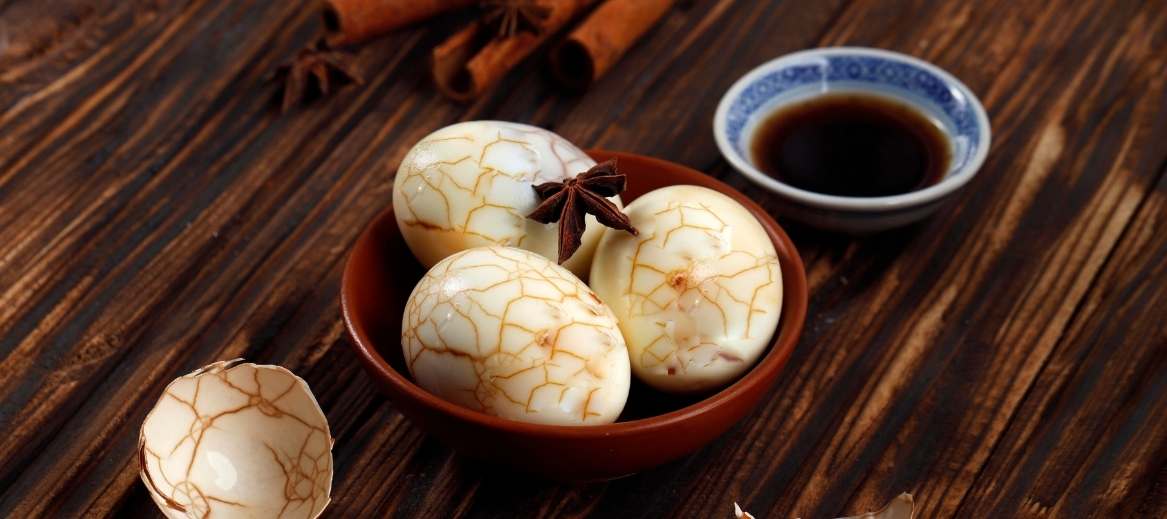CHINESE TEA EGGS
When it comes to food, I’m really particular. That’s all there is to it. I prefer to cook my food, but I have the worst of times when I go out. It’s as if the universe wants to put my resolve to the test. It seems to occur regularly for some reason. When we go out as a family, I always get the salad with the decaying lettuce leaf, or the dish that tastes like salt is the number one ingredient!
Now, I’d like to share my thoughts on Chinese tea eggs for a moment. To be honest, I enjoy a nice tea egg just as much as the next person, but it’s easy to overcook them, resulting in a chalky green yolk.
As a result, I’ve come up with this soft Chinese Tea Egg dish. For ramen, I was trying to replicate the process used by the Japanese to cook eggs.
The way to boil these eggs is quite inventive since they come out tasty but soft in the middle. Taking a cue from traditional Chinese tea eggs, I reimagined them with a more adventurous twist.
Compared to the original recipe, I believe this one makes a better tea egg.
INGREDIENTS:
- 12 pcs. of eggs
- 2 slices of ginger
- 3 pcs. of star anise
- 1 pc. of cinnamon stick
- 2 pcs. of bay leaves
- 2 tbsp. of black tea leaves
- 1 tsp. of Sichuan peppercorns
- 3 tbsp. of light soy sauce
- 4 tsp. of dark soy sauce
- 1 tsp. of sugar
- 2 tsp. of salt
- 2 tbsp. of Shaoxing wine
- 7 cups of water (enough so all eggs are submerged)
INSTRUCTIONS:
- After removing the eggs from the refrigerator, let them come to room temperature for two hours.
- Sauce base: Add the other ingredients to a medium pot and bring to a boil. Ensure you get it boiling, then reduce the heat to a simmer—ten minutes of simmering under a covered lid. Finally, remove the lid and allow the dish to cool completely before serving.
- Prepare an additional kettle of water for the eggs. Using a large spoon, lower the eggs into the boiling water as rapidly as possible. You don’t want to drop them and break them on the bottom of the pot. Using a timer, allow the eggs to cook in the boiling water for 7 minutes. When the timer goes off, immediately remove the eggs from the pan and place them in an ice bath. Make sure the ice bath is cooled before you remove it from it. The goal here is to bring the eggs to a complete stop in the frying process.
- Gently crack the eggshells after the eggs have cooled down. Cracking the egg open to allow the sauce base’s taste to permeate the yolk is the purpose here. Tap the eggs with a spoon, but do so carefully! It’s possible to shatter an egg open if you tap or crack it too forcefully because the yolk is still quite soft.
- Make sure the broken eggs are completely submerged in the sauce base and sit for 24 hours in the refrigerator. Finally, they’re ready! For a more robust flavor, you can leave them in for a longer period of time. Refrigerated for 3 to 4 days, these eggs keep well.
